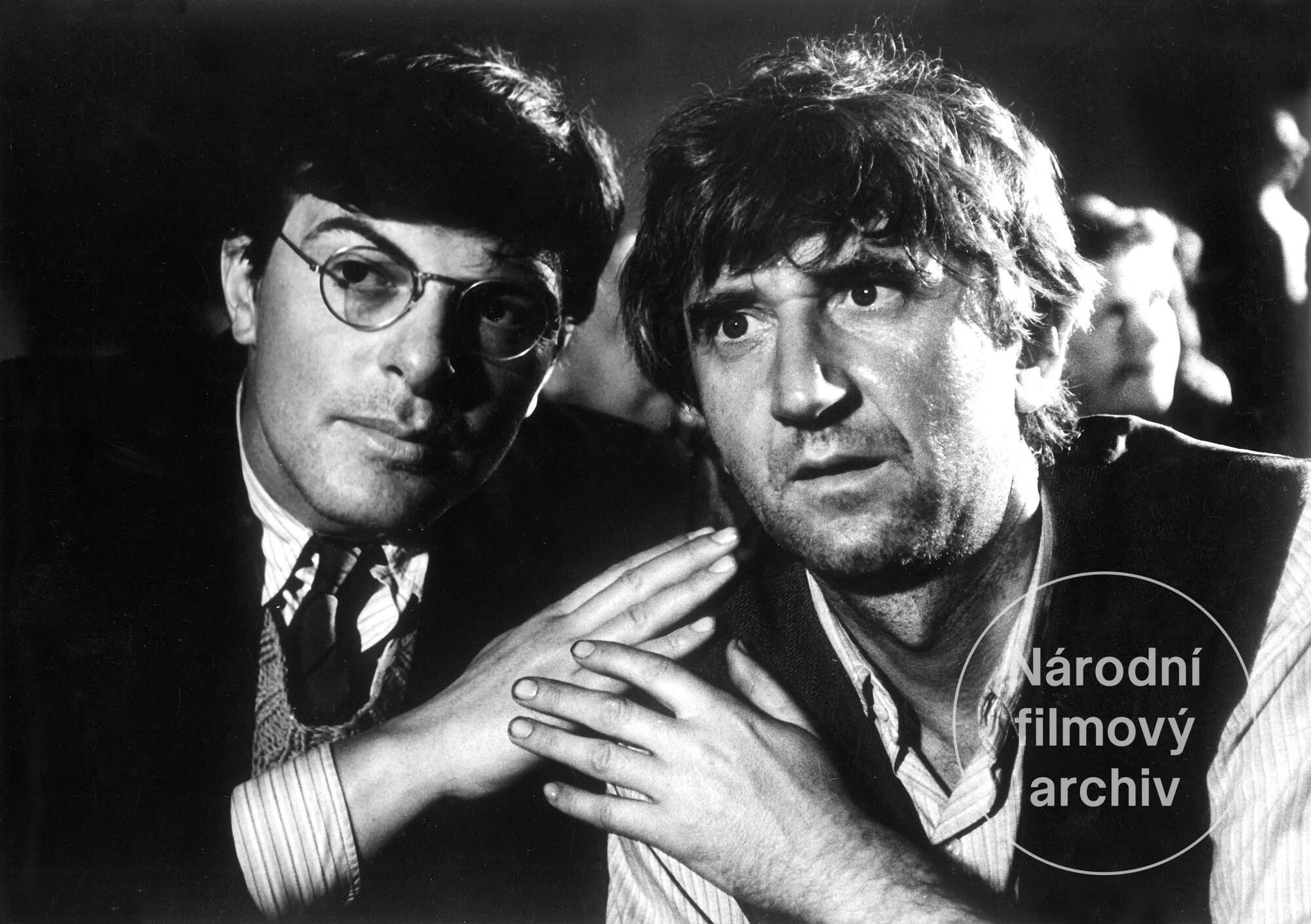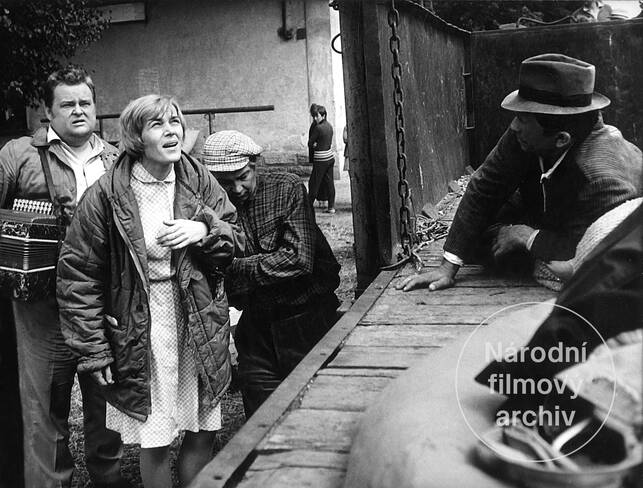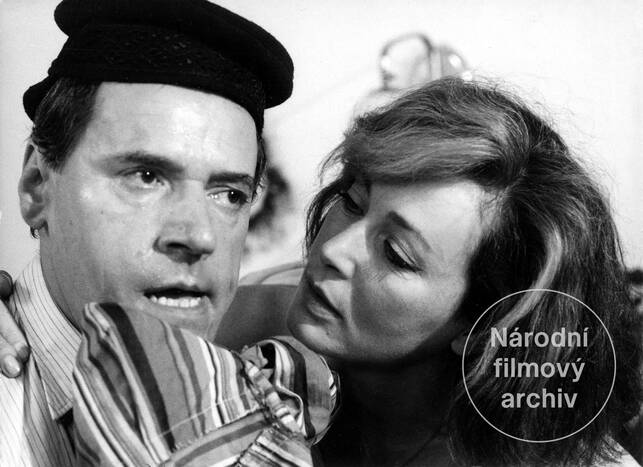Summary
Evald Schorm shot Den sedmý – osmá noc (The Seventh Day, the Eighth Night, 1969) as a response to the August 1968 Soviet occupation of Czechoslovakia, but the film was not released. As a result, the director, who died in December 1988, never got to see the premiere of his film which did not take place until 1990. This parable about Czech cowardice, cruelty, and pettiness is played out over the course of 24 hours in a village that hosts a travelling theatre company presenting biblical Passion Plays. Their performance is interrupted by a power cut, and the conniving villager Srandista (“Funny Guy”) is easily able to spread alarming news of imminent danger. The inhabitants quickly succumb to panic, becoming the victims of bullying or, conversely, finding totalitarian tendencies within themselves. Consequently, an evacuation in waiting railway carriages is not for everyone… The story, which includes an authentic experience of that period inserted by the co-screenwriter Zdeněk Mahler, moves from comedy to tragedy within the framework of an episodic structure, in which the writers spared no one. The rapid moral degradation of the characters corresponds to allegorical references to the story of Jesus’s life, which the protagonists simply don’t understand. Typically, the local madman becomes the only character capable of reflection...
With a clinical, objective sense of distance, Schorm and Mahler rely on absurd situations and dialogue that presciently capture the atmosphere created by the encroachment of “real” socialism. The authentic period mood combined with the loss of ideals and certainties, as well as doubts concerning the future, properly reflect the rapid social changes that occurred in the autumn and early winter of 1968. It is obvious in the movie that the filmmakers were working under pressure. The impression of hurriedness and raw authenticity turns the film into a document of its time. Jan Libíček as Srandista stands out in an excellent cast. The director of the Passion Plays is Jan Kačer, who appears as Učitel (“the Teacher”) and who also played the lead role in Každý den odvahu (Courage for Every Day), which Schorm directed in 1964.
Read more




